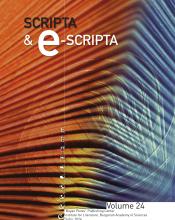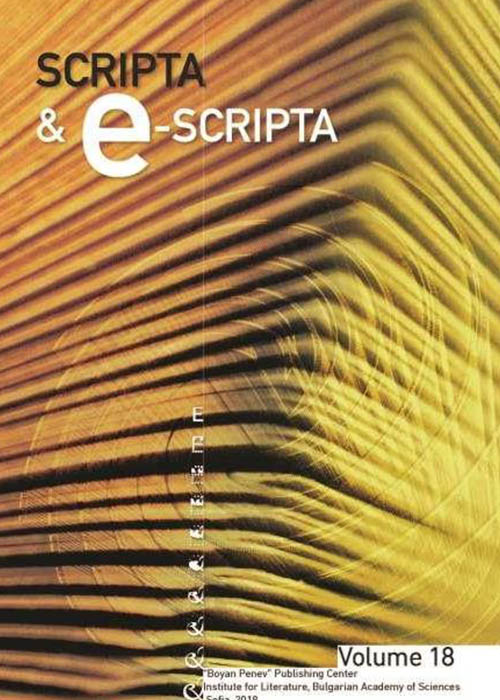Language and Languages in the Epigrams of Palladas of Alexandria

- Author(s): Dimitar Iliev
- Subject(s): Debuts //
-
Published by: Institute for Literature BAS

- Print ISSN: 1312-238X
- Summary/Abstract:
The poet Palladas of Alexandria is one of the most curious figures of Late Antique literature. In his ca. 160 epigrams preserved as a part of the Greek Anthology and dating from 4th c. AD, he assumes the poetic persona of a poor schoolmaster equally distanced from the crowds of Christian monks flooding the streets of his home city and from the teachings of his contemporary pagan philosophers. It seems probable that he might have been indeed a italicized by trade, since many of his poems abound in linguistic puns, word plays (successful or less so), and parodies of the great poets from the literary canon, especially Homer, as well as of their commentators, the famed Alexandrian grammarians, Palladas’ colleagues. In several of his works, he even goes beyond the realm of the Greek language in order to make jokes about Latin loanwords used by his fellow citizens. The present paper will examine the attitude of the poet towards language reflected by such linguistic puns and jokes in his works.
Journal: Scripta & e-Scripta vol. 24, 2024
-
Page Range: 317-341
No. of Pages: 25
Language: English - LINK CEEOL:
-
Dimitar IlievBulgariaSt.Kliment Ohridski University of SofiaDescription
Dimitar Iliev is an Assistant Professor in Classics and Digital Humanities at the Department of Classics of the Faculty of Classical and Modern Languages at the St.Kliment Ohridski University of Sofia. He holds a PhD degree in Greek Linguistics and an MA degree in Computer Linguistics and Humanities Computing from the University of Sofia. His main research interests include Digital Classics, Greek and Latin Diachronic Linguistics, Late Antiquity, Digital Editing and Publication of Historical Documents. Along with research papers in these and related fields, he has also published translations in Bulgarian of works by Aristotle, Cicero, Lucian, St. Gregory the Theologian, and others.
-
SUBJECT: Debuts //KEYWORDS: Late Antiquity // epigram // grammar // Greek language // Latin loanwords // CHRISTIANITY //
-